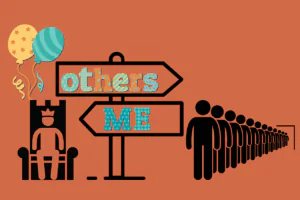Grief counseling is an effective way to cope with loss. Counseling for grief and loss can help you work through your emotions and find ways to cope. You can also use grief counseling as a way to prepare yourself for future losses. This article addresses steps to take with grief counseling, but before we go further, let’s first define grief and some important types of grief.
What is Grief
Grief is essentially an emotional wound. You have lost someone or something of deep value to you. The healing of this grief wound is a process called mourning, which involves feeling the pain of the loss and coming to terms with the reality of it, adjusting to your “new normal,” and developing an “enduring connection” with the focus of your grief even as you move forward in your life.
In addition to loss and sadness, grief includes varying levels of feelings of guilt, anger, regret, and more. Indeed, grief involves many complex emotions. And the emotions of grief can be confusing and even contradictory at times. For example, someone may mourn a loved one who died from cancer yet feel relief that the person is no longer suffering.
Some people accomplish much of the mourning process and resume normal activities within six months, although they continue to feel moments of sadness. Others may feel better after a year or two. Sometimes people grieve for many years without seeming to find any relief. That is called complicated grief and is addressed below.
There are two main styles of grieving. Instrumental grieving focuses on problem-solving tasks and involves controlling or minimizing emotional expression. Intuitive grieving is based on a heightened emotional experience and involves sharing feelings, exploring the lost relationship, and considering mortality. Most people display a blend of these styles.
Complicated Grief
Time usually reduces the intensity of grief. However, approximately 7% of people who have lost a loved one will experience complicated grief. This refers to symptoms that persist without improvement for a year or more. Complicated grief dominates a person’s life and interferes with their daily functioning. Symptoms include:
- Intense sadness
- Feelings of emptiness and hopelessness
- Yearning to be reunited with the deceased
- Preoccupation with the deceased or with circumstances of the death
- Difficulty engaging in happy memories of their loved one
- Avoidance of reminders of the deceased
- Detachment and isolation from surviving friends and family
In addition, if someone is vulnerable to depression, grief has the potential to trigger a depressive episode. If an individual already has depression, their condition may prolong or worsen the grieving process. This is important to recognize for grief counseling.
Related Reading: How to Deal with Unresolved Grief
Disenfranchised Grief
Disenfranchised grief happens when mourning is restricted in some way. Society may stigmatize someone’s mourning process or refuse to acknowledge their loss.
For example, women who undergo a miscarriage may feel guilt and shame and avoid telling others about their loss. Another example is where people may not recognize the relationship to the deceased. In communities with systemic heterosexism, same-sex partners may experience disenfranchised grief. People with cognitive impairments or disabilities may also have disenfranchised grief.
Disenfranchised grief can interfere with the bereavement process because if society doesn’t recognize a loss, the person may have trouble accepting it themselves.
Cultural Influence on Grief
In many western cultures, death is depicted as something to fight or resist. Eastern cultures tend to characterize death as part of life – more of a transition than an end. Furthermore, social norms can differ regarding how much emotion is appropriate to show when grieving. For instance, the stoic British “stiff upper lip” contrasts to the use of paid mourners in certain eastern and near-eastern cultures.
Additionally, your religious tradition and spirituality influence how you grieve. Religious traditions usually offer structures for facilitating the grieving process and set timings for the process. For example, Catholic tradition includes funerals and wakes where mourners honor the deceased whose body is typically present in a casket or urn. Jewish tradition includes “sitting shiva,” a period of time where family and friends visit the bereaved family in their home to remember the deceased. Individual spirituality shapes how you grieve as well, whether in a religious tradition or not.
Grief Counseling
According to Elizabeth Cleary, senior staff psychologist, clinical supervisor, and former director of clinical training at the Simms/Mann UCLA Center for Integrative Oncology, “Coping strategies matter: writing, reading, mindfulness, exercise, a strong instinct to connect with others, share their emotional experience, not avoid or numb hard feelings. But those are really advanced skills that many of us take most of our lives to cultivate.”
If your loss is particularly traumatic or stigmatized in some way you are more likely to benefit from professional help. Others may need help coming to terms with aspects of their relationship with the deceased. The purpose of grief counseling is not to make you less sad but less tortured.
According to Cleary “There are a lot of unrealistic expectations around grief. It can be intensely physical; it can be accompanied by a lot of fatigue. It’s also very cognitively demanding for us to try to make sense of and adjust to a world without a loved one. That takes a lot of our processing energy. It’s hard to concentrate, hard to focus.” For people who don’t know this, these experiences can be confusing and worrying.
Grief counseling is a type of therapy designed to help you find meaning about the loss and move through the stages of grief to begin the healing process. Depending on the individual situation, grief counseling may be as little as one session, or it may take many sessions over a long period of time to accomplish your goals.
Goals for Grief Counseling
The first goal of grief counseling is to help you understand completely that you have suffered a major loss.
The next step is to identify and deal with any trauma connected to the loss. Before you and your behavioral health provider decide what treatment approach to take during the grief process, your counselor needs to help you identify any parts of your experience that were traumatic. You can then process these traumas and move past them and onto the task of grieving your loved one.
If you feel like friends and family are judging your grieving process, you may need a behavioral health counselor with whom you can share your feelings without worrying about saying something that might bring more judgment.
Some people go months or even years before they experience their feelings about the loss. In the meantime, they continue feeling numb or distant. One of the goals in grief counseling is to support you in expressing the emotions of normal grief in the way works best for you. Many people feel guilty for things they said or did or for things they failed to say or do before their loved one passed. Grief counselors can help you identify guilt feelings that could lead to relationship problems, drug or alcohol abuse patterns, or other negative coping strategies.
Grief Counseling Techniques
First and foremost, your grief counselor is there to support your process of grieving, and to help ease obstacles to that process. One of the first obstacles some people face is giving themselves permission to grieve. Some see expression of feelings as a sign of weakness, selfishness, or incompetence. Grieving is an important part of saying goodbye to a loved one and your mental health professional can help you to give yourself permission to feel and express your feelings.
Grief counselors use a variety of techniques in their work. One is to have you describe the moment of loss. Doing this allows you to re-experience the loss with guidance and in the presence of mental health professionals. They can help put it into perspective while also giving you support for the emotions that surface as you remember. This also helps them to know if you experienced trauma, which can then be dealt with before the grief.
Related Reading: How to Heal Grief with EMDR and Somatic Therapy
Another technique is for the grief counselor to say the name of the deceased frequently to acknowledge the deceased person’s importance to you. They will also use words that may be hard for you to hear at first in regard to death. In doing so, the grief counselor strives to not push you past your comfort zone and will respect your boundaries.
Grief counselors may prompt you to talk about similar situations from the past and how you dealt with them. They can then support you in repeating the things that helped before, and also teach you new ways of coping to replace old methods that weren’t effective.
Because grief involves many life changes, setting goals for your new life is important. Your counselor can help you determine the right goals to work toward at first.
It may be helpful to give yourself a specific time and activity to help you remember your loved one. As part of your grief therapy, you can come up with a ritual that you do maybe once a month at first and then eventually do once a year.
Young children also grieve but grief counseling for children uses different approaches, such as through play, art, etc.
Therapists have many more grief counseling strategies. Therapy can help you with your loss because it gives you an opportunity to explore your feelings and memories without judgement. You can learn how to deal with grief denial and ways of recovering from grief based on your individual situation. Life Care Wellness has therapists trained in various grief counseling techniques who can help you to cope with your loss. Please reach out to us in our Glen Ellyn, Chicago (Jefferson Park),Sycamore, or Yorkville locations.
Rhonda Kelloway is the owner and principal therapist at Life Care Wellness, a group psychotherapy practice in Glen Ellyn, Sycamore, Chicago (Jefferson Park neighborhood), and Yorkville, Illinois. She is a trauma specialist utilizing a Somatic Experiencing framework to utilize the body’s wisdom in healing. She also uses EMDR and a variety of traditional psychotherapy approaches in her work. In addition to being a psychotherapist, she is a trained divorce and family mediator.





